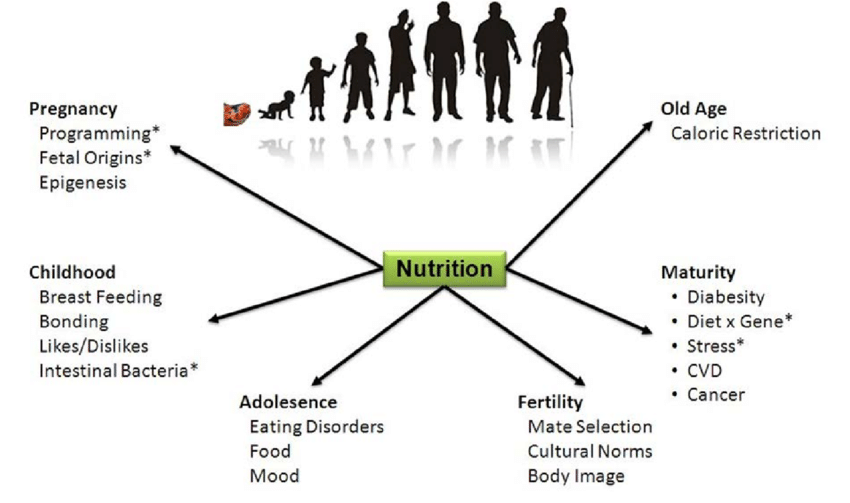Introduction
In today’s fast-paced world, achieving optimum nutrition is more than just a dietary goal—it’s a pathway to overall well-being and peak performance. This article explores the concept of nutrition, delving into its significance, key principles, and practical steps for integrating it into daily life.
Table of Contents
What is Optimum Nutrition?
Optimum nutrition refers to providing the body with the right nutrients in the right amounts to support health, growth, and vitality. It’s about consuming a balanced diet that meets individual nutritional needs, promotes overall health, and prevents diseases related to nutrient deficiencies or imbalances.

Optimum nutrition is crucial for several reasons:
Health and Disease Prevention:
A well-balanced diet supports a strong immune system, reducing The chance of continual illnesses which include coronary heart disease, diabetes, and positive cancers.
Physical Performance: Proper nutrition fuels physical activity and athletic performance, aiding muscle growth, endurance, and recovery.

Mental Well-being:
The brain requires specific nutrients to function optimally, affecting mood, cognition, and focus.
Key Principles of Nutrition
To achieve optimum nutrition, it’s important to follow these key principles:
Energy levels are stable.
The current recommendation is for adults to consume 30 grams of fiber per day, but our average intake is 20 grams per day.
Fiber is an important nutrient that helps the body digest food more slowly and keeps energy levels stable. It helps move toxins through your body system faster, preventing you from feeling lethargic and keeping you alert.
It’s versatile, helping you feel fuller for longer and preventing you from reaching for unhealthy sugary foods that can upset your blood sugar balance.
Eat more fiber-rich foods such as fruits, vegetables and whole grains.
Balanced Diet:
Include a variety of foods from all food groups—fruits, vegetables, whole grains, lean proteins, and healthy fats—to ensure adequate intake of essential nutrients.
Portion Control:
Manage portion sizes to avoid overeating and maintain a healthy weight.
Nutrient Density:

Choose foods rich in nutrients per calorie, such as leafy greens, nuts, and lean proteins.
Hydration:
Drink lots of water for the day to stay hydrated and assist physical functions.
Moderation:
Enjoy treats and less healthy foods in moderation to maintain balance in the diet.
Practical Tips for Nutrition
Here are practical steps to enhance your nutrition:
Meal Planning:
Plan meals to ensure a balanced diet and avoid reliance on unhealthy convenience foods.
Read Labels:

Be mindful of food labels to understand nutritional content and make informed choices.
Cook at Home:
Prepare meals at home using fresh ingredients to control ingredients and portion sizes.
Include Variety:
Incorporate various colors and textures in your meals to ensure a diverse nutrient intake.
Supplementation:
Consider supplements to fill nutritional gaps, especially if certain nutrients are lacking in your diet.
The Role of Optimum Nutrition in Different Life Stages
Children and Adolescents:
Proper nutrition is crucial for growth, development, and academic performance.

Adults:
Optimum nutrition supports productivity, energy levels, and overall health.
Elderly:
A balanced diet helps maintain muscle mass, bone health, and cognitive function in older adults.
Challenges to Optimum Nutrition
Despite the benefits of optimum nutrition, several challenges can hinder its achievement:
Food Accessibility:
Socioeconomic factors can limit access to fresh, nutritious foods.
Busy Lifestyles:

Time constraints may lead to reliance on processed foods that are high in sugar, salt, and unhealthy fats.
Conflicting Information:
The abundance of nutrition advice can be overwhelming and confusing.
Optimum Nutrition: Achieving Your Best Through Balanced Eating
Conclusion
Optimum nutrition is the cornerstone of a healthy lifestyle, promoting physical and mental well-being across all stages of life. By embracing balanced eating habits and making informed food choices, individuals can optimize their health and unlock their full potential. Remember, the journey toward nutrition begins with small, sustainable changes that can lead to significant long-term benefits.

